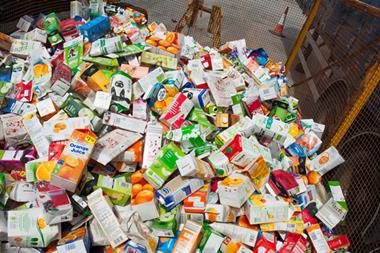Major stakeholders in the UK’s food and non-food markets have stated their commitment to sourcing sustainable palm oil by 2015, with some vowing to switch earlier still.
Some are ahead of the game, showing consumers that palm ingredients come from sources certified by the Roundtable on Sustainable Palm Oil (RSPO). But are retailers being given the information they need about the obligations that come with using sustainable palm oil? The RSPO has strict rules governing sustainability claims, but some businesses risk falling foul of them if they are not properly advised.
Any company that wants to make claims about use of RSPO-certified palm oil must be a member of the RSPO, undergo an audit and gain certification as an RSPO-approved user. Having passed the audit, the business receives a unique number to be used on all documentation.
Every party in the supply chain, in fact, must be certified in order to preserve the integrity of the system. The onus is on suppliers of RSPO-certified palm oil to support customers and advise them to become audited and follow RSPO guidelines. But this does not always happen.
Some might see the complex web of rules as a barrier to buying sustainable palm oil. However, without them we would risk harming the credibility and efforts of the sustainable palm oil movement.
There has to be an authority governing certification and use of RSPO-certified palm oil, and any claims made, in order to maintain credibility. The only way to do this is to set out strict rules and requirements.
The problems associated with palm oil production are well-documented, from rainforest destruction to forced removal of people from their land. The RSPO is a global effort to halt the damage and change the industry for the better. It’s a process that depends on the cooperation and support of all players, particularly businesses that buy palm oil.
The RSPO recently announced that, to date, five million tonnes of sustainable palm oil have been produced, representing about 9% of global production. Of that, 2.65 million tonnes have been sold. If sustainable production is to increase and meet the demands of the 2015 pledges, the market must support RSPO-certified producers and buy sustainable material now.
So what can retailers do about it? If you’re not doing so already, ask questions of your supplier. Ask about RSPO membership and the rules, and whether the supplier has been audited. Ask for clarification about your right to use the RSPO trademark and to make claims about using certified palm oil.
It is a necessarily complex process, which is why, as RSPO founder members and the first to import sustainable palm oil to Europe, we offer sustainability clinics. We explain the RSPO-approved supply chain options, and guide companies through the steps they must take to join the RSPO.
If a business is not ready or able to use physical material, it can offset its use of palm with GreenPalm, an RSPO-approved option that represents 70% of sustainable palm oil trades to date.
Whether or not businesses buy from us is irrelevant. Our role is to promote the use of sustainable palm oil and to prevent retailers and manufacturers falling prey to sell-and-run suppliers who could be selling only half a product.
Sign in to comment on this article
Not logged in before? Register for FREE guest access today.
You will be able to:
- Read more stories
- Receive daily newsletters
- Comment on stories
Advert



















No comments yet